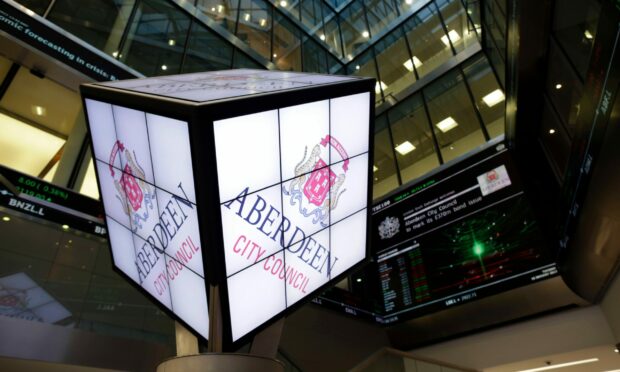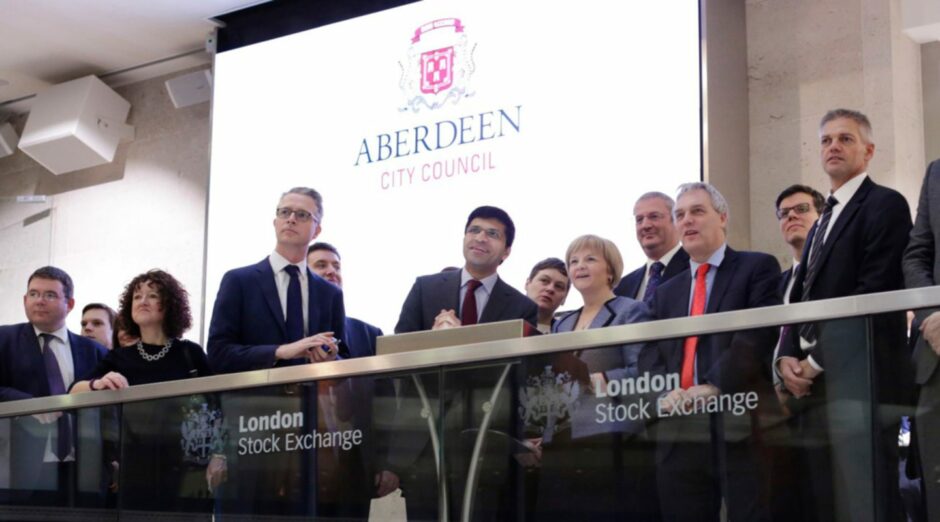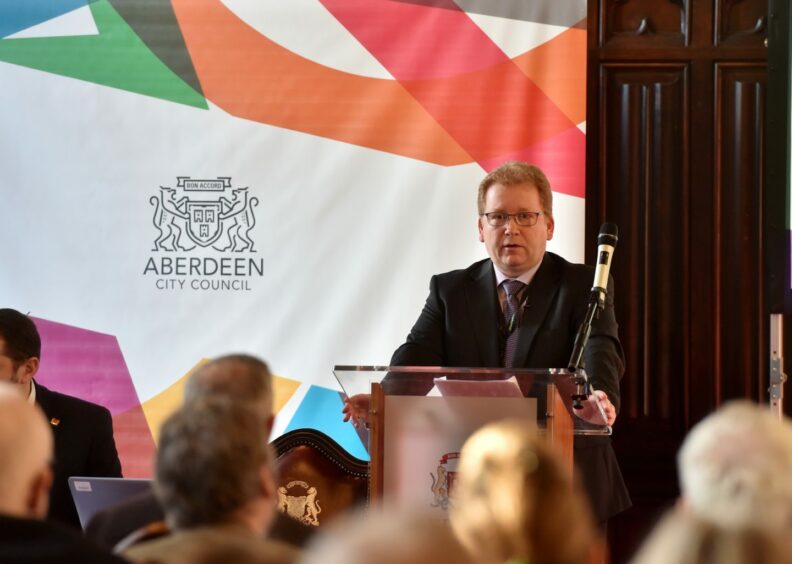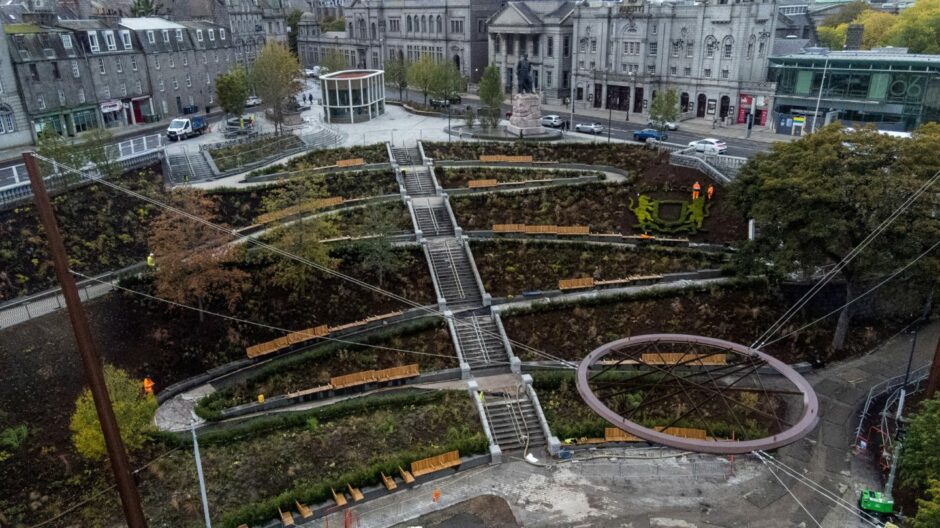The short-lived premiership of Liz Truss and the “extreme financial turmoil” it brought has been blamed for new forecasts showing Aberdeen City Council will spend millions more than budgeted this year.
By the end of the financial year, the local authority expects a £4.4 million deficit in its general fund.
Top brass is being ordered to delay, stop or reduce spending “wherever possible”.
Whatever shortfall is left come March will be covered by council reserves.
Now, councillors are being told “it is clear” borrowing will cost the council more, and will “make future capital investment more expensive”.
It comes as city planners map out a huge regeneration project for Aberdeen.
‘Weakened’ UK economy hits Aberdeen finances too
“Weakening” of the UK economy has been blamed, though the city’s actual credit rating remains unchanged at A1.
That remains key, as the rating is directly linked to the council’s £370m bond issue on the London Stock Exchange.
Now, the extent of the pressures – most recently worsened by Liz Truss’s six weeks as prime minister – have been spelled out by Aberdeen City Council’s chief finance officer.
Jonathan Belford will next week account for the multi-million-pound budget gap, which he puts down to “significant changes to the financial environment”.
Continued Covid-19 impacts and the Russian invasion of Ukraine were already causing prices to soar.
Support during the pandemic – and changes in behaviour such as less use of council car parks – have hit the city’s purse.
The response and support offered to the more than 1,000 Ukrainian refugees in Aberdeen since June has been “similar” to the coronavirus effort too, he said.
Rising energy costs are expected to affect “almost all” council services this year, as will the 40-year-high inflation.
Borrowing to fund Aberdeen City Council’s regeneration work now more expensive
But council chief Belford also highlighted “extreme volatility” brought by the shortest stint as prime minister in UK history.
The Trussonomics tumult left government borrowing rates at their highest since the 2007 global financial crisis.
With the change of chancellor – and later, the prime minister – borrowing rates have improved slightly.
They are now at levels last seen at the financial market collapse in September 2011.
Mr Belford said: “Financial markets reacted such that many of the initiatives announced in the mini-budget have subsequently been reversed.
“The result has been an increase in the cost of government borrowing. Local authorities are seeing significant increases in borrowing rates through the (UK Government’s) Public Works Loan Board.
“The cost of new borrowing is rising and inflation and construction inflation are at very high levels.
“The council should expect the cost of capital investment to rise substantially for both the general fund and the housing revenue accounts.”
Higher borrowing costs will increase cost of Aberdeen City Council capital projects
The planned £150m city centre and beach masterplan and new council housebuilding both fall under that bracket.
In recent months, the construction of new schools, nurseries and council homes has been put on hold to reassess costs.
The cost of the long-delayed refurbishment of Union Terrace Gardens recently increased by £1.5m – up to nearly £30m.




Conversation